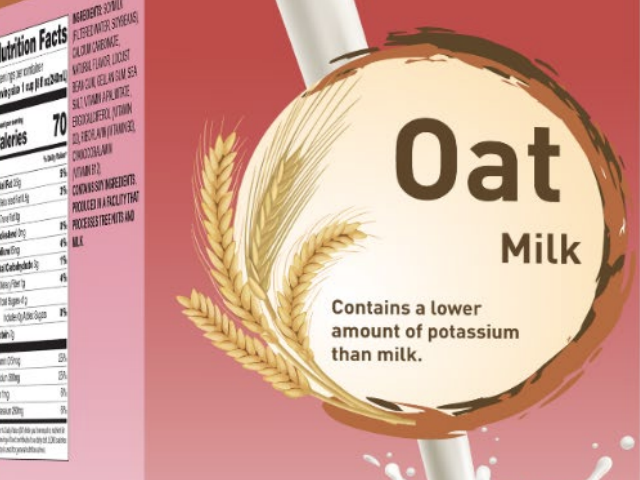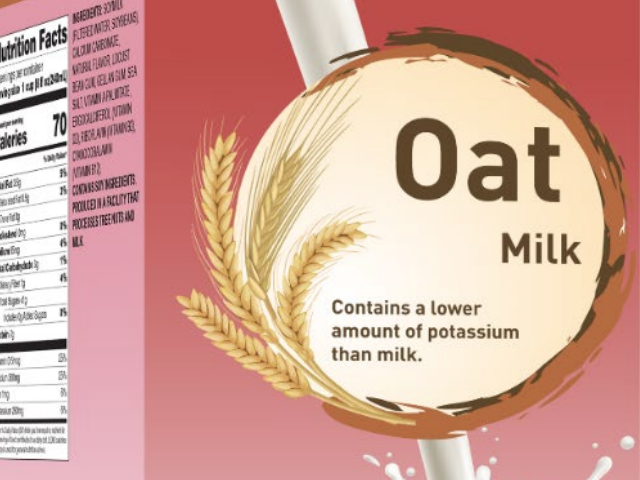An Urban's Rural View
The Real Winners of the FDA's Milk Labeling Decision
On the surface, the Food and Drug Administration's decision on labeling of plant-based "milk" looks like the kind of messy compromise that gives each side half a loaf. Dig deeper, though, and it's clear the dairy producers got the better of the deal.
The FDA's proposed guidance would allow soy, almond and other plant-based beverages to be called milk. That's a continuation of the status quo. There's plenty of Almond Milk and Oat Milk and other such "milks" on the shelves already.
What's transformational in the FDA's proposal is that if a plant-based "milk" is less nutritional than cow's milk, the label should admit that. Prominently. The agency suggests a front-of-the-package admission along the lines of, "Contains lower amounts of Vitamin D and Calcium than milk." (https://www.fda.gov/…)
This is big. While what the FDA issued is draft guidance rather than legally binding regulation, plant-based companies will feel pressured to comply.
FDA says its aim is to avoid consumer confusion. Based on focus groups the FDA conducted and the 13,000 comments it received since it asked for input in a 2018 Federal Register notice, the agency concluded the product's name doesn't confuse most consumers. They're not buying almond milk thinking it's cow's milk. They're buying it because it's not cow's milk.
Some of those rejecting cow's milk are lactose-intolerant. Some are vegans. Some, though, think plant-based milk is as healthy as cow's milk or even healthier. That, the agency says, is where the confusion lies.
P[L1] D[0x0] M[300x250] OOP[F] ADUNIT[] T[]
"While consumers appear to understand that plant-based milk alternatives are distinct products from milk, several consumer studies submitted in response to the notice indicate that consumers, including consumers who purchase plant-based milk alternatives, do not understand the nutritional differences between milk and plant-based milk alternatives."
The agency's required admission of nutritional deficiency is an attempt to clear up that confusion. It's not an admission the plant-based milk companies want to make.
The nutritional contents of the product are already on the back of the package, the Plant Based Foods Association complained. Requiring a negative nutritional comparison to cow's milk on the front, the association's CEO said, is discriminatory and "unfairly burdensome." Unfortified skim milk has less of some nutrients than whole milk; why don't skim-milk labels also have to make the admission? (https://www.plantbasedfoods.org/…)
The president of the National Milk Producers Federation hailed the requirement as "a step toward labeling integrity for consumers of dairy products." (https://www.nmpf.org/…) But the cow's milk folks remain unhappy that they weren't given exclusive rights to the word milk.
They read the law as requiring exclusivity, but it's also possible to read it differently, as the FDA does. "Plant-based milk alternatives are not milk," the agency says -- and that's the point. They're "non-standardized foods," which the agency says should be labeled with their "common or usual names" -- and "soy milk" and "almond milk" are common usage.
Dictionaries support a broad reading of the word milk. My unabridged Webster's Third New International, copyright 1966, offers multiple definitions, one of which includes plant liquids.
A student of dictionaries says they've been defining it that way for 600 years. (https://grist.org/…) People were drinking a beverage called almond milk, especially during Lent as a substitute for cow's milk, as long ago as the 1200s. (https://www.discovermagazine.com/…)
In any event, the value of the word is more symbolic than commercial. It isn't "milk" that's selling plant-based alternatives. It's the plant names attached to it indicating they're not milk.
Some plant-based milk substitutes already avoid the word. My neighborhood Trader Joe's sells only Almond Beverages and Soy Beverages and specify they're "nondairy."
It wouldn't be surprising if other plant-based milks weren't eventually renamed beverages to avoid carrying the prominent admission of nutritional inferiority. The FDA's price for the privilege of calling a plant-based beverage milk may be too high.
FDA says it will accept comments on its draft until April 24, after which it will begin work on the final version. (https://www.federalregister.gov/…) Both sides are certain to argue for changes.
The plant-based food groups also say they're meeting with their lawyers to consider their options. The dairy groups put their hopes on Congress, where legislation to accomplish their goal was recently reintroduced. (https://www.risch.senate.gov/…)
Other farmers and ranchers will naturally sympathize with their dairy-farmer cousins on the exclusivity issue. Don't shed too many tears for them, though. Although the FDA only gave them half a loaf, it was by far the more important half.
Urban Lehner can be reached at urbanize@gmail.com
(c) Copyright 2023 DTN, LLC. All rights reserved.






Comments
To comment, please Log In or Join our Community .